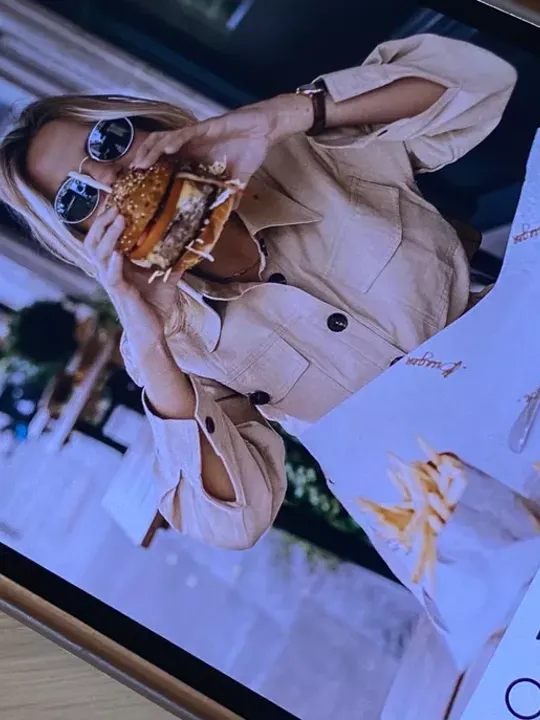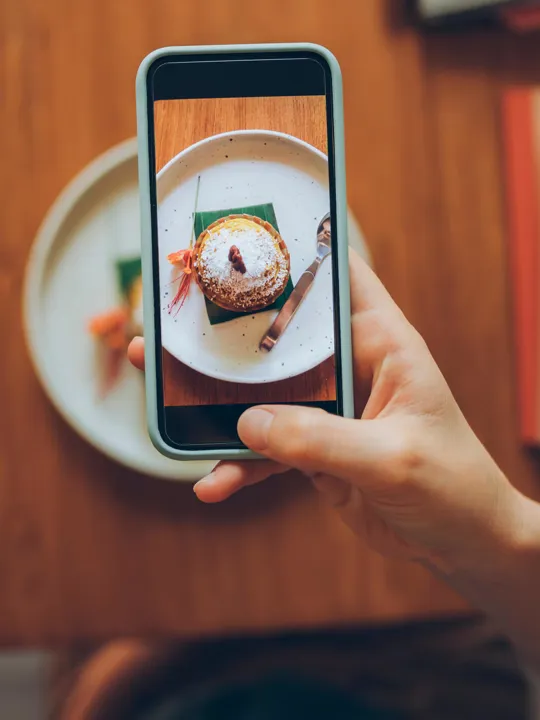The July Instagram Update: Blending Social Media and SEO
Starting 10 July 2025, Instagram will begin allowing public content from Business and Creator accounts to appear in Google Search results. This means your Reels, photo posts, carousels and even Story Highlights could soon show up right alongside your website, TripAdvisor listing, or blog content, without any extra effort on your part.
Historically, Instagram has been a closed-loop platform, meaning content lived solely within the app and wasn’t indexed by search engines. For hospitality brands, this often limits your discoverability to only those already following you or actively searching on the platform. But now, Instagram is joining the ranks of SEO-friendly platforms, giving your content a much longer shelf life and far wider reach.
This is a major shift. Perhaps one of the biggest to happen in recent years. However, for hotels, restaurants, spas, and other venues, this is a fantastic opportunity to adapt your social media and drive more direct bookings, boost brand visibility, and reduce reliance on third-party platforms. Instead of being tucked away in someone’s feed, your Instagram post showcasing a weekend spa offer or new summer menu could now appear when someone searches “spa hotel in Devon” or “best steak restaurants in Mayfair”.
In short: your Instagram feed just became part of your search footprint, and that opens up exciting new ways to capture attention, drive web traffic, and build stronger connections with your audience before they ever hit “book now.”
Why This Update Matters to Your Brand
For the first time, your Instagram posts will be discoverable outside of the app itself, allowing people without an account to see what you post, who you are and what makes you stand out in SERPs.
This new update means that now your social content can do more than engage followers; it can drive organic traffic, increase brand visibility, and support direct bookings by showing up in relevant search results like “romantic hotel in Jersey” or “afternoon tea in Richmond.” It also strengthens your brand’s digital footprint, giving your content the potential to reach new audiences, build trust, and reduce reliance on OTAs and third-party booking platforms.
In essence, your Instagram feed just became part of your SEO strategy, and that’s a big win for brand affinity, discoverability, and long-term revenue..
What’s Changing on Instagram?
Public content from professional Instagram accounts (that’s Business and Creator profiles) will begin appearing in Google Search results.
This update means that:
- Posts, Reels, carousels, and even Story Highlights can now be indexed by Google.
- It only applies to users over 18 with public professional accounts.
- Your Instagram content is no longer just for your followers; it’s now part of the open web, visible to anyone searching on Google for relevant topics.

Why This is a Big Deal for Hotels, Restaurants, and Venues
Your content is now searchable beyond Instagram
A well-timed Reel or carousel showcasing your private dining room, seasonal menu, or hotel views could appear in relevant Google searches, even months after posting. So now it’s less about ‘put out what we can’ and more about ‘what does this say about us as a business’ and ‘who are we trying to target with this post’.
Your content has a longer shelf life
No more 24 hour engagement windows: posts could continue generating traffic and interest well after they’ve gone live. That makes having a strategic, consistent content plan more important than ever. So, if you’re re-using the same duplicates from your image library and relying on stock… It’s time to address that.
SEO meets social
Instagram has now become an active part of your content marketing ecosystem. It’s time to start doing it properly. That means keywords in captions, thoughtful image choices, and optimised Highlights can all contribute to your search visibility and brand footprint.
More direct discovery, less OTA reliance
When your content ranks well in Google, it means more people are finding you first, not a third-party platform. That means more direct bookings, higher guest spend, and less commission paid out.
This is your chance to let your social content do double the work: building awareness on Instagram and now fuelling search-led discovery too.
Where Will My Instagram Content Appear?
With the new update, your Instagram posts will no longer stay confined to the app. If your account is public and set up as a Business or Creator profile, your content may now appear in:
- Traditional Google Search Results (SERPs): Posts, Reels, and carousels may show up for relevant search queries.
- Google Images: Your visuals (with strong alt text and captions) can appear in image-based search results.
- AI-Generated Overviews (or Snapshot Answers): Instagram content may be pulled into AI summaries when answering common questions.
- Google Discover (Mobile): Relevant, timely content may be surfaced to users browsing Google’s personalised mobile news feed.
What Types of Instagram Content Are Likely to Rank on Google?
It’s time to think beyond just creating for your followers and start thinking like a content creator with an SEO mindset. Posts that are informative, location-specific, and visually strong are far more likely to surface in search.
Educational reels or how-tos
Things that are quick, engaging tutorials or behind-the-scenes tips. For example: “How to prepare the perfect espresso martini,” or “The secret to our Sunday roast.”
Geo-tagged, location-specific posts
Use searchable captions and tags like “best spa hotels in Jersey” or “rooftop dining near London Bridge.” These help Google serve your content when users search for hospitality options in your area.
Behind-the-scenes & team profiles
High-quality, authentic posts that showcase your chefs, concierges, sommeliers, or housekeepers build trust and transparency, values that Google (and your guests) love.
Event coverage & brand values
Posting about live events, seasonal celebrations, charity dinners, or sustainability efforts helps reinforce your authority and relevance, both to your community and to search engines.
Our tip: To succeed, treat your Instagram like a content channel, not just a visual feed. Every caption, image, tag, and story becomes a touchpoint that can drive discovery and direct bookings.

How to Optimise Instagram for SEO
To make the most of Instagram’s new visibility on Google, you’ll want to approach your posts with an SEO lens.
Captions
Use relevant keywords naturally in your descriptions. Make them helpful, descriptive, and engaging, just like you would in a blog. For example, instead of “Can’t wait for the weekend,” a swap now needs to mimic the kind of messaging you already put into your SEO copy, such as “Join us for Sunday lunch at our riverside Richmond restaurant.”
Alt Text
Add alt text to your posts to describe what's in the image. Not only does this improve accessibility, but it also gives Google more context to understand your content. Include relevant details and location keywords.
Hashtags
Use relevant, niche, and geo-specific hashtags to help surface your content in both Instagram and Google Search. For example: #SpaHotelJersey, #LondonPreTheatreDinner, #DevonAfternoonTea.
Profile Bio
Treat your bio like SEO metadata. Clearly state who you are, what you offer, and where you're based. For example: Luxury coastal hotel in Jersey | Spa, dining & weddings | Book direct for the best rates.
Highlight Covers & Names
Rename and organise Highlights using keywords users are likely to search for, e.g. “Weddings,” “Spa Offers,” “Afternoon Tea,” or “Events.” This reinforces your relevance and helps your content surface in more specific searches.
How This Supports Your Broader Marketing Strategy
Instagram’s integration with Google Search isn’t just a social media update; it’s a super powerful new lever for your entire digital marketing strategy. For hotels, restaurants, and venues, this shift supports the goals we focus on every day at Cab Hospitality:
Drive direct bookings
With your content now appearing in Google Search, potential guests can discover you organically through posts, Reels or carousels, not just your website. That means you’re no longer just appealing to your direct following; you’re appealing to the whole internet. This means new traffic, new visibility, and more opportunities to convert users directly, without relying on paid ads or third-party platforms. However, this also means remaining relevant to those who do follow you, but broad enough to appeal to users who don’t even have an Instagram account.
Uplift guest spend
Use your SEO-optimised Instagram content to showcase add-ons and experiences, whether that’s spa packages, chef’s table menus, room upgrades or local collaborations. This makes it easier for curious browsers to discover what else you offer and encourages higher average spend per guest.
Reduce OTA commission
By making your social content discoverable on Google, you’re creating brand-led search journeys that begin with your content and end on your booking engine. That means less dependency on OTA listings and more control over how your brand story is told and sold.
We can’t reiterate enough how this isn’t just a visibility update. It’s a chance to amplify your social content’s ROI and make it work even harder across your full marketing funnel.
Tips for Hospitality Businesses
To make the most of Instagram’s integration with Google Search, here are some simple but strategic steps hospitality brands can take:
- Set Up a Professional Account: Ensure your Instagram account is set to Business or Creator. Only professional, public accounts will be eligible for indexing on Google.
- Enable “Allow Search Engines”: Go to your Account Settings → Privacy → Search Engine Settings, and make sure “Allow search engines to show your photos and videos” is turned on. This is essential for your posts to appear on Google.
- Align Instagram with Your SEO Strategy: Treat Instagram as an extension of your website’s content strategy. Use relevant keywords in your captions, bios, and alt text, especially for location-based content or service-specific posts like “afternoon tea in Richmond” or “Jersey spa hotel”.
- Think Micro-Content, Not Just Visuals: Instagram is no longer just about beautiful imagery; it’s about useful, engaging, keyword-rich content. Informative captions, geo-tags, and value-driven posts will now pay off in the long term, especially when paired with strong visuals.
- Repurpose & Cross-Promote: Turn top-performing blogs into Reels, Stories or carousels (and vice versa). Got a post doing well on Instagram? Consider expanding it into a full blog or optimising the topic on your website for better search coverage.
By embedding these habits into your regular posting schedule, you’ll be better positioned to maximise visibility, drive discovery, and support both bookings and brand growth, on and off social.
Conclusion: Social and Search Are No Longer Separate
Instagram’s latest update marks a significant turning point. It’s time to face that your content isn’t just for your followers anymore; it’s now discoverable far beyond the app.
For hospitality businesses, this shift means you can no longer just post for likes or simply to remain active in the algorithm. You need to now adapt your strategy to post for search. Every image, caption, and carousel is about to become a part of your brand’s online footprint, working hard to support visibility, traffic, and bookings over time.
At a time when AI-generated answers are changing how people find information, and organic reach on social is more competitive than ever, this update gives you a smart, future-proof way to bridge the gap between social media and SEO.
We can help
If you’re ready to upgrade your hotel’s social media to work harder for you, we’re here to help. From identifying your content pillars, to planning, scheduling and capturing your content, our team can assist in building a brand new organic social strategy that gives you results.
Wanna talk a little more about it? Get in touch!